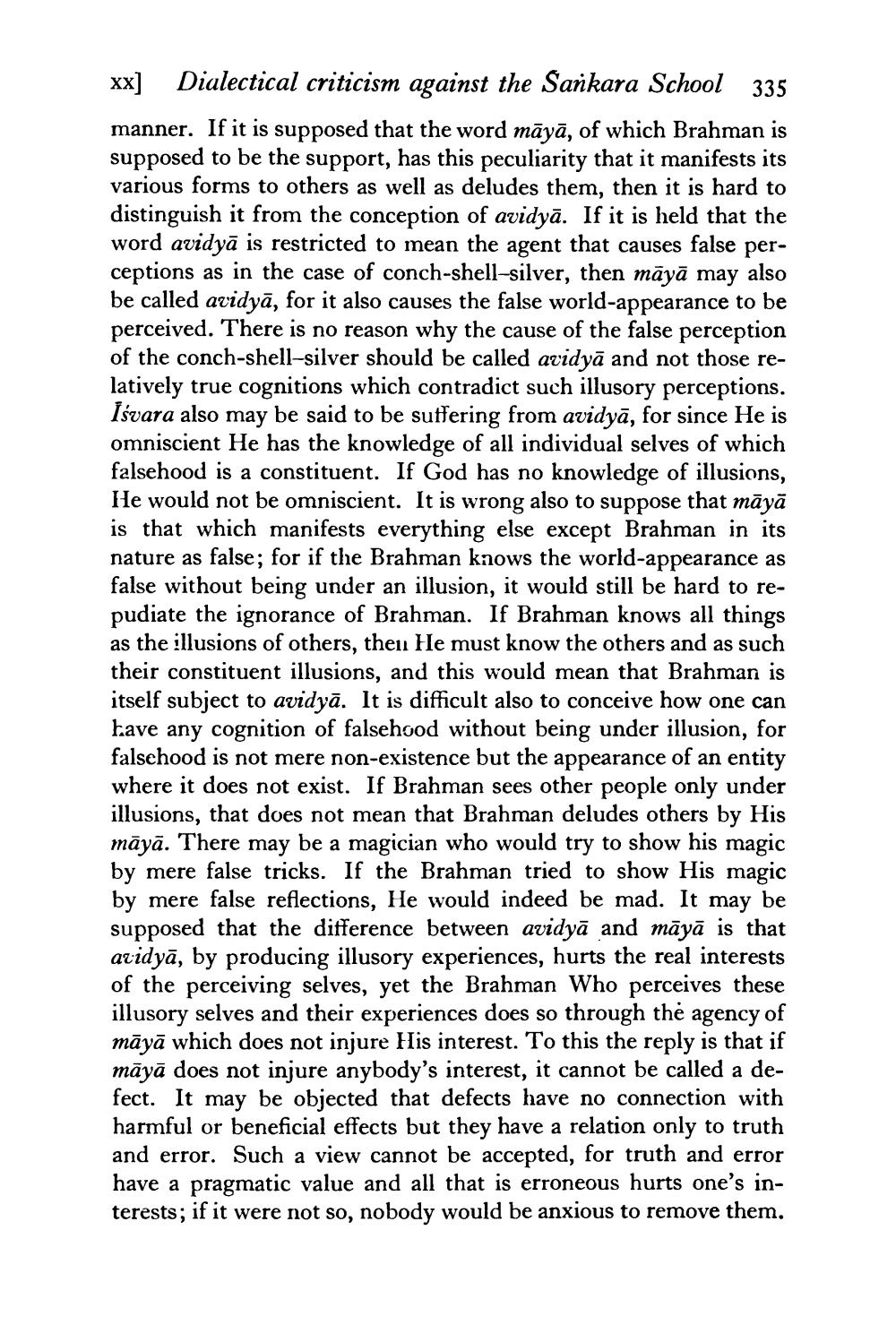________________
xx]
Dialectical criticism against the Sankara School 335
manner. If it is supposed that the word māyā, of which Brahman is supposed to be the support, has this peculiarity that it manifests its various forms to others as well as deludes them, then it is hard to distinguish it from the conception of avidya. If it is held that the word avidya is restricted to mean the agent that causes false perceptions as in the case of conch-shell-silver, then māyā may also be called avidya, for it also causes the false world-appearance to be perceived. There is no reason why the cause of the false perception of the conch-shell-silver should be called avidya and not those relatively true cognitions which contradict such illusory perceptions. İsvara also may be said to be suffering from avidya, for since He is omniscient He has the knowledge of all individual selves of which falsehood is a constituent. If God has no knowledge of illusions, He would not be omniscient. It is wrong also to suppose that māyā is that which manifests everything else except Brahman in its nature as false; for if the Brahman knows the world-appearance as false without being under an illusion, it would still be hard to repudiate the ignorance of Brahman. If Brahman knows all things as the illusions of others, then He must know the others and as such their constituent illusions, and this would mean that Brahman is itself subject to avidyā. It is difficult also to conceive how one can have any cognition of falsehood without being under illusion, for falsehood is not mere non-existence but the appearance of an entity where it does not exist. If Brahman sees other people only under illusions, that does not mean that Brahman deludes others by His māyā. There may be a magician who would try to show his magic by mere false tricks. If the Brahman tried to show His magic by mere false reflections, He would indeed be mad. It may be supposed that the difference between avidya and māyā is that avidya, by producing illusory experiences, hurts the real interests of the perceiving selves, yet the Brahman Who perceives these illusory selves and their experiences does so through the agency of māyā which does not injure His interest. To this the reply is that if māyā does not injure anybody's interest, it cannot be called a defect. It may be objected that defects have no connection with harmful or beneficial effects but they have a relation only to truth and error. Such a view cannot be accepted, for truth and error have a pragmatic value and all that is erroneous hurts one's interests; if it were not so, nobody would be anxious to remove them.




